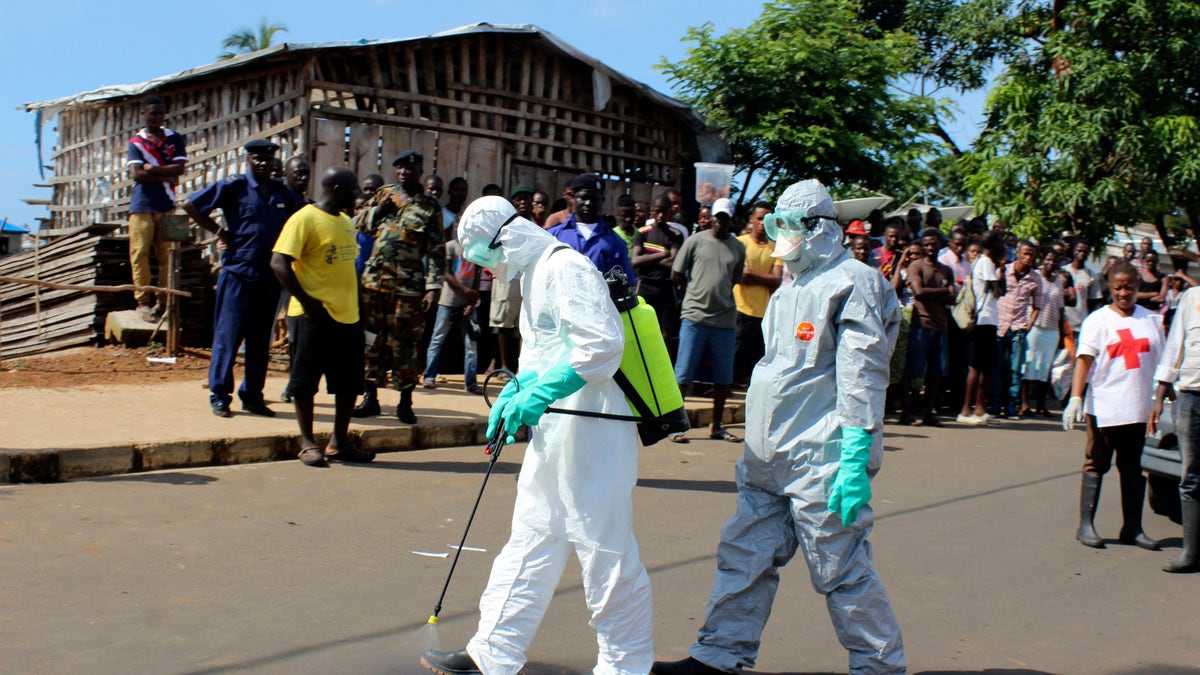
Health workers spray themselves with chlorine disinfectants after removing the body a woman who died of Ebola virus in the Aberdeen district of Freetown, Sierra Leone, October 14, 2014. REUTERS/Josephus Olu-Mammah
To stop the current Ebola outbreak and prevent future ones from becoming so large, it's crucial for health care volunteers to build trust in the communities where the disease can spread, well before a crisis starts, experts say.
Without such trust, it is hard to get people within those communities to accept and follow public health advice, which can allow an outbreak to spiral out of control, according to a recent study.
"It's not a simple, easy thing to tell a mother that she can't touch her sick child if [the child] has a fever," said Timothy Roberton, of the Johns Hopkins School of Public Health, who conducted the research and presented it here on Monday (Nov. 17) at the American Public Health Association Meeting. "We've got to remember that what we're asking people to do has profound implications."
"The more we can appreciate the reasons for their actions, the more successful we're going to be at bringing this outbreak to an end," Roberton said.
In the study, researchers interviewed Red Cross volunteers in Guinea during a two-week period in July. They found that part of the reason why the Ebola outbreak escalated so dramatically is because people in the some parts of the country were reluctant to adhere to advice from health care workers regarding how to stop the disease's spread.
For example, people in some villages did not believe that an Ebola outbreak existed, and some were hostile to volunteer health care workers, Roberton said, during his presentation. Some people believed that the Ebola outbreak was a hoax, and a way for the government to raise money. There were also rumors that the Red Cross volunteers had made up the disease to steal body parts. [Where Did Ebola Come From?]
The recommendations to prevent Ebola also interfered with the local customs of preparing the body for burial, so some villagers would not allow Red Cross volunteers to safely bury the bodies of the dead, Roberton said.
To overcome resistance from villagers, Red Cross volunteers contacted community leaders, such as regional and political leaders, to get everyone on the same page as to what needed to be done to stop the spread of Ebola, Roberton said.
In addition, when someone died from Ebola, the Red Cross volunteers began allowing family members to put on protective equipment and watch the burial, and pray over the body from a distance, Roberton said.
It's important for volunteers to work to build trust, even when there isn't an ongoing crisis such as an Ebola outbreak, Roberton said. "If we want to convince families [to follow public health messages] we need to build trust, and that takes time."
Copyright 2014 LiveScience, a TechMediaNetwork company. All rights reserved. This material may not be published, broadcast, rewritten or redistributed.
